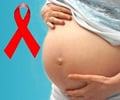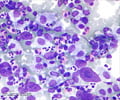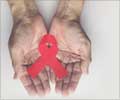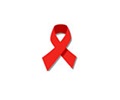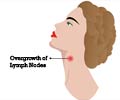Kaposi's Sarcoma in AIDS/HIV - Symptoms and Treatment
Kaposi's sarcoma
Kaposi sarcoma (KS) is a cancer that affects the soft tissues such as skin, mouth (oral cavity), food pipe (esophagus), and anal canal. Generally individuals with low immunity or those who are immunosuppressed are more at risk for KS.
"Classic" KS that was found among older men of Jewish heritage is now rare. In this form, it is slow to grow but in AIDS individuals it progresses rapidly.
Kaposi Sarcoma-associated Herpes Virus (KSHV) causes KS in immunocompromised individuals. Men are much more prone to develop KS than women and it affects them in the age group between the ages of 25 and 59.
Though Kaposi’s sarcoma was a common cancer in AIDS, the number of cases has come down during the past few years. The incidence of KS is high among African Americans and low in Asians and Pacific Islanders.
Symptoms of Kaposi’s Sarcoma
Kaposi’s sarcoma commonly affects the skin and mucous membranes of the oral cavity. It can also affect the gastrointestinal tract, lungs and liver beside other organs. Features include:
- Appear as reddish to purplish spots of varying number and severity. The patches cause no problems as such but can be painful
- Can cause breathlessness if it affects the lungs
- Bleeding if it affects the gastrointestinal tract
- Obstruction to the flow of bile if it affects the liver
Treatment of Kaposi’s Sarcoma
Currently, HIV patients are treated with a combination of anti HIV drugs called the HAART (Highly Active Anti-Retroviral Therapy) regimen. This combination has led to the disappearance of Kaposi’s sarcoma in some patients.
Some such lesions can be treated locally with cryotherapy, laser therapy, radiation or injection with anticancer drugs.
Severe and widespread cases are treated with injectable drugs

